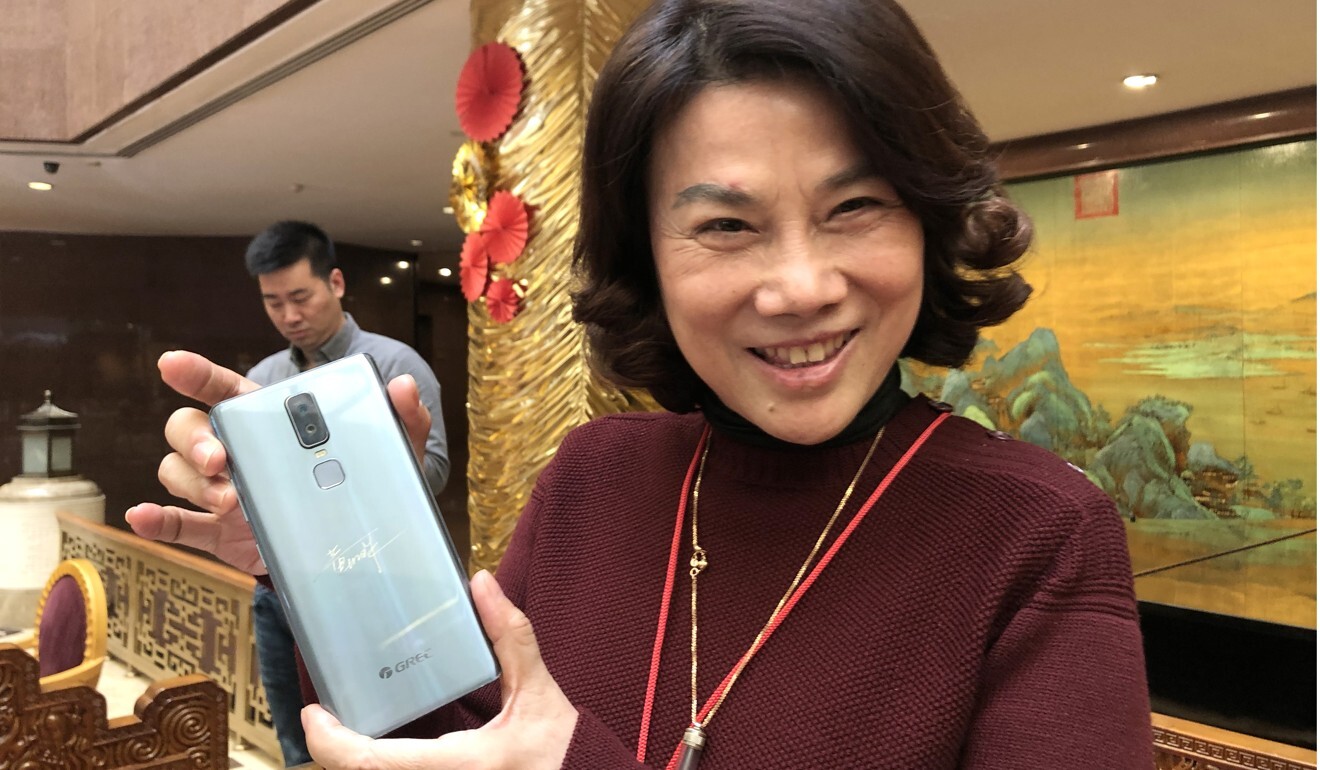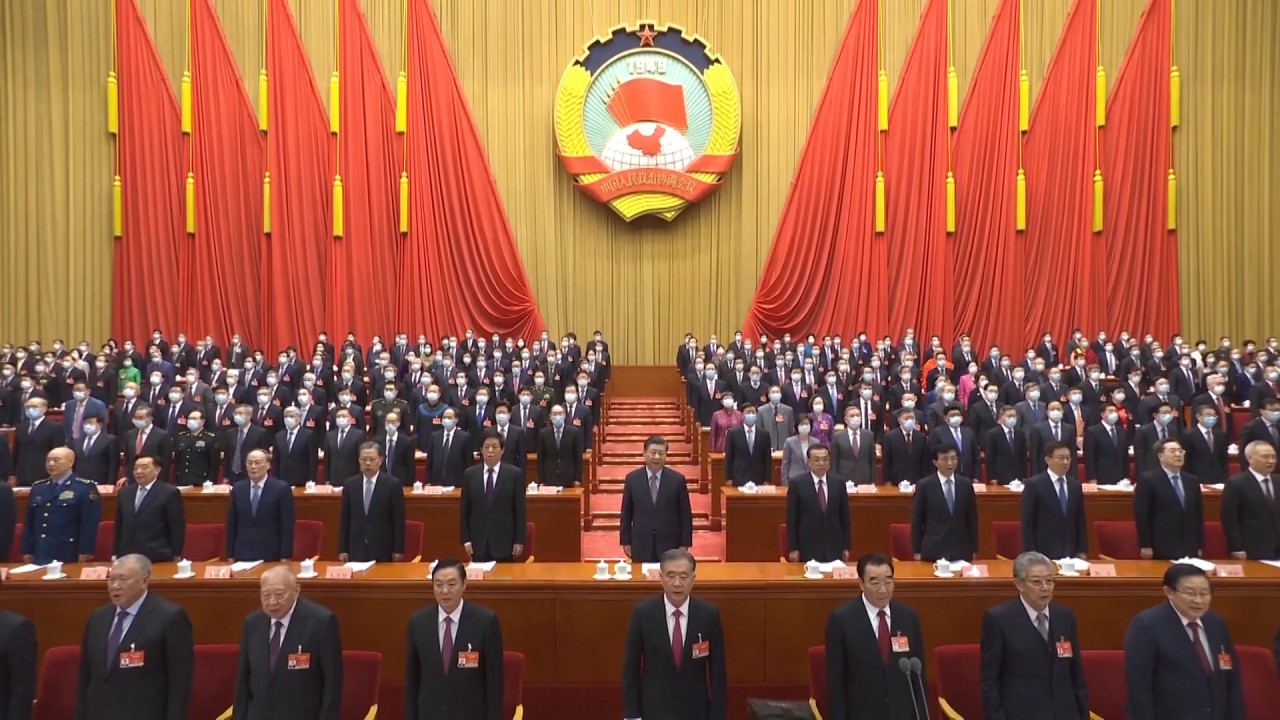
Why it’s time for China to cut its 45 per cent income tax rate
- The top bracket, payable on monthly income over 80,000 yuan, or US$12,000, hinders efforts to expand the tax base, boost investment and attract global talent
- Shenzhen, Hainan and Beijing appear to have realised this. Perhaps it’s time the central government did too
A case in point is that over the past years, she has consistently and publicly pressed the Chinese government to reform its regressive and much maligned personal income tax regime by hiking the tax-free threshold so that most Chinese don’t have to pay income tax.

Dong is not alone. A number of influential Chinese tycoons including Xu Jiayin, chairman of Evergrande Group, a major property developer, and Cao Dewang, chairman of Fuyao Group, one of the world’s largest glass manufacturers, have made similar appeals around the time of the NPC’s annual sessions, when the public’s attention is on economic and livelihood issues. The NPC’s annual session this year is even more important as deputies are to review and approve the country’s next five-year plan, for 2021 to 2025, and its long-range objectives known as Vision 2035.
There is little doubt the appeal by Dong and other NPC deputies will generate media headlines and heated discussions at the meetings but it is unlikely to persuade the government to act soon.
For Dong and others, on top of their argument that raising the tax-free threshold helps boost spending power and consumption, another argument is that personal income tax already contributes only about 6.5 per cent of China’s total tax revenues, so that the net effect on the country’s fiscal situation would not be serious if the contribution were further reduced.
Is it already too late to defuse China’s population time bomb?
The last time the tax-free threshold was raised occurred in October 2018 when it was raised from 3,500 yuan to 5,000 yuan a month, or 60,000 yuan a year. As a result, the number of people liable for income tax was estimated to have fallen to 64 million, about 15 per cent of the labour force, down from 187 million people or 44 per cent of the labour force, according to official estimates.
In reality, of the 64 million people liable for income tax, the number of the people who actually pay any tax is even smaller because of tax evasion and under-reporting.
But China’s fiscal experts have countered that by hiking the tax-free threshold to 10,000 yuan or higher, personal income tax collection will be further marginalised and the base of tax payers further shrunk. It would also adversely affect tax awareness and further complicate future tax reforms.
That probably explains why the government has resisted rising public demands to further lower the threshold.
But that is not the only pressure the government is grappling with on reforming its personal income tax regime.
A much bigger and more urgent issue is for the Chinese leadership to reduce the top income-tax bracket of 45 per cent and streamline other tax categories to make the tax system better fit international norms.

02:01
Annual meeting of China's top political advisory body opens
Like the US, China has adopted a progressive tax system, with tax rates from 3 per cent to 45 per cent.
But China’s fiscal experts and even former senior officials including a former finance minister have argued that the top bracket of 45 per cent on monthly taxable income greater than 80,000 yuan has hindered the government’s efforts to expand the base of tax payers, improve its investment climate and attract international skilled talent.
Huang Qifan, former mayor of Chongqing, have long urged the leadership to make reducing the top rate of 45 per cent a top priority in reforming the tax regime. China’s 45 per cent rate is even higher than the top federal tax rate of 37 per cent in the US.
Back in the 1980s when China started to introduce the personal income tax law which put the top bracket at 45 per cent, the top rate for corporate income tax was set at 55 per cent.
Since then, the government has made numerous cuts to bring corporate income tax down to 25 per cent but has left the top rate for individual income tax unchanged at 45 per cent.
One key reason for the delay is that the government intended to use it as a tool to tackle income inequality which has been growing and causing widespread discontent in China.
That also perhaps explains why Dong and other tycoons have been pressing for a higher tax-free threshold instead of a reduction of the top rate, whereby they could be accused of helping themselves even though the latter option is much more meaningful.
Indeed, the top tax rates have prompted high-income earners, private entrepreneurs and entertainers in particular, to find various means, legal or illegal, to avoid paying.

As a result, personal income tax is largely a salary tax imposed largely on the middle class.
As far back as 2017, Huang suggested that the government should lower the top bracket to 25 per cent in line with the corporate tax rate, which is on a par with international norms. Fiscal experts have agreed that lower rates would “incentivise ” the high-income earners to pay taxes at the same time that the authorities strengthen tax collection and punishment for tax evasion, which would help broaden the tax base and increase revenues in the long term.
Last year, Lou Jiwei, a former finance minister, publicly echoed Huang’s view but he suggested lowering the top bracket to 33 per cent.
Looking ahead, the pressure on the government to cut the top rate will only get greater as the Chinese leadership looks to promote innovation and boost productivity as the economy is expected to slow further after four decades of rapid growth.
Would China let the US teach American values in Peking University?
To foster innovation, the ability to recruit and retain talent, particularly from overseas, is crucial and the competition for talent is intensifying at the local level.
Now the city of Beijing is mulling a similar move with the details to be announced later this year.
Those localities are unlikely to offer the preferential rate without approval from the central government. In a way, this reflects the Chinese leadership’s acknowledgement that the high tax rates are impeding efforts to promote innovation and entrepreneurship.
Instead of allowing the selected cities and provinces to offer pilot schemes that risk creating regional disparities, the central government should listen to the wise counsel of Huang and Lou and make reducing the top rate a national policy.
Wang Xiangwei is a former editor-in-chief of the South China Morning Post. He is now based in Beijing as editorial adviser to the paper

